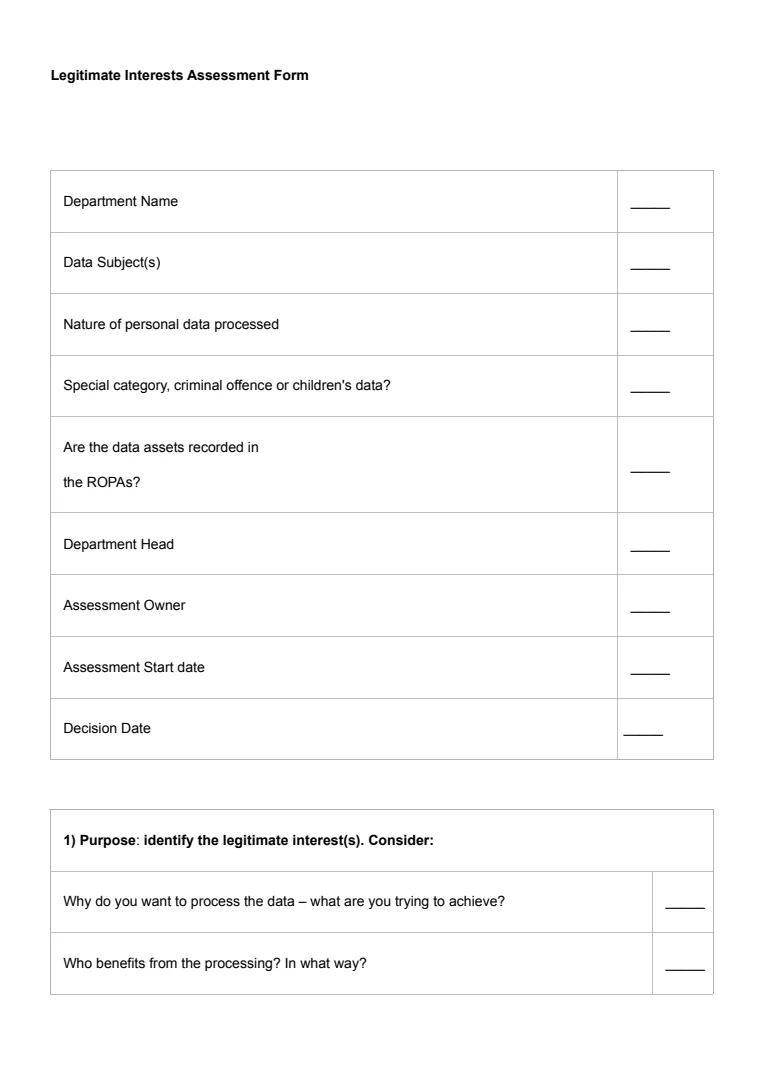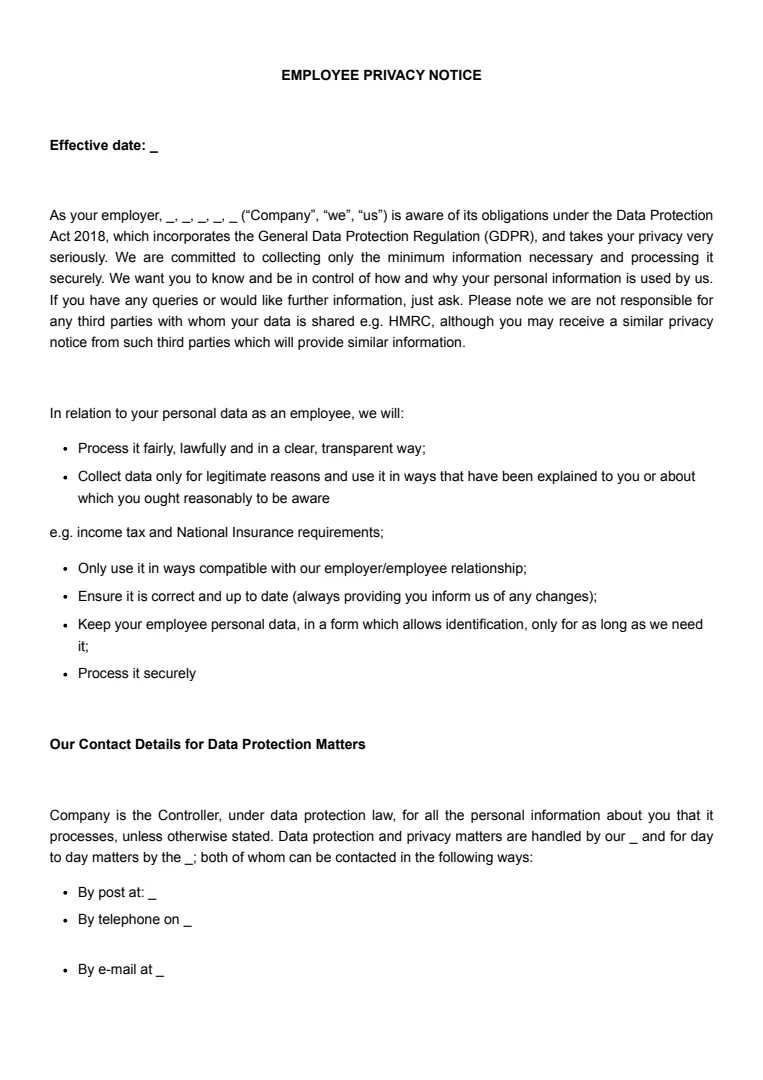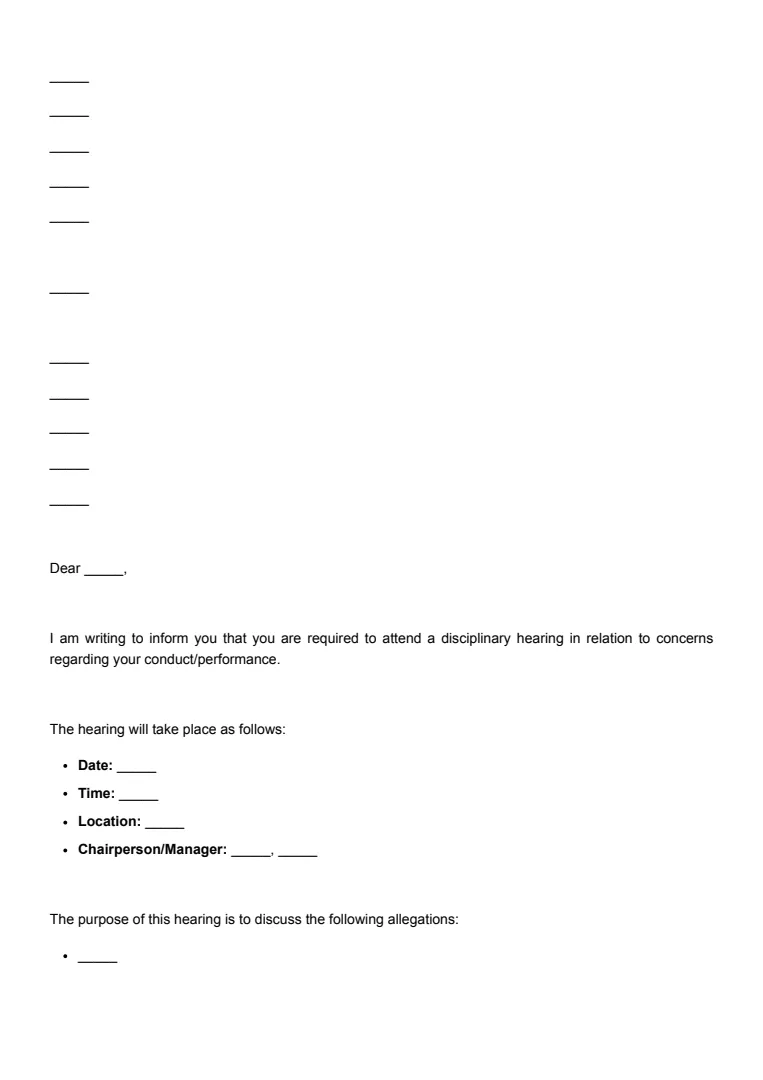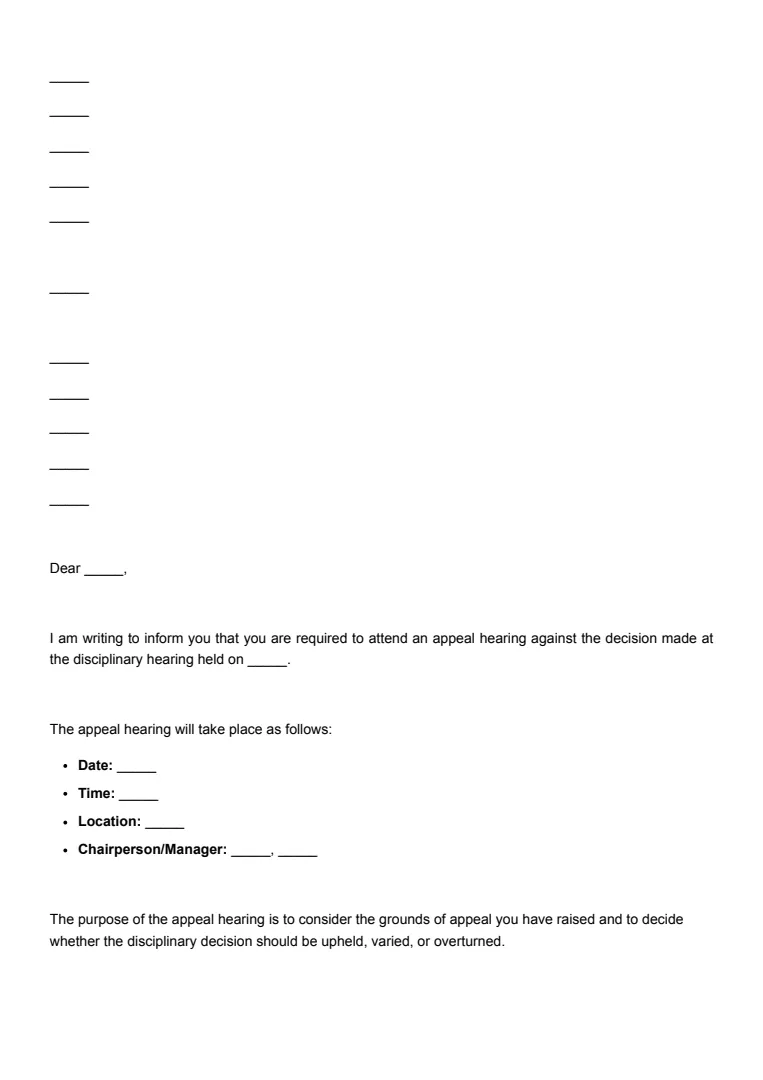What Is an Appeal Letter?
An appeal letter is a formal way to ask for a second chance if you believe a decision that affected you was incorrect or unfair. You might use it in different situations like academic dismissals, redundancy, denied insurance claims, or rejected applications.
Essential Elements of an Appeal Letter:
- Sender's Information: Begin with your full mailing address.
- Date: Add the date you're writing the letter.
- Recipient's Address: Include the address of the person or organisation you're writing to.
- Subject Line: Clearly state the purpose of the letter.
Appeal letters are usually written when you want to challenge a decision or outcome. It's your opportunity to present your side of the story or provide additional information that may have been overlooked.
Key Sections to Include in an Appeal Letter:
- Introduction: Start by explaining why you’re writing the appeal letter.
- Body: Detail the reasons for the appeal. Include any facts, figures, or documentation that support your case.
- Conclusion: Summarise your request and express gratitude for the recipient's attention.
Make sure your language is polite and assertive. You want to come across as reasonable and professional, even if you're feeling frustrated by the situation.
Remember, the goal is to get the decision reviewed and possibly overturned, so clarity and courtesy go a long way.
In essence, an appeal letter is your opportunity to provide a compelling narrative that may lead to a favorable reconsideration. It should be structured, evidence-based, and aimed at the decision-maker you're addressing.
When Is an Appeal Letter Needed?
A common scenario where an appeal letter may be needed is in the workplace where you believe you have been unfairly dismissed or want to challenge a redundancy or claims of gross misconduct. Your appeal letter will clearly state the purpose of your appeal and provide supporting evidence to back up your argument.
You might also need to write an appeal letter when facing academic challenges. Maybe your academic performance took a hit due to unexpected events, and you want to explain these extenuating circumstances to your university. This is your chance to communicate the changes you made and how they affect your performance.
Another situation arises during the university admissions process. If your original application is denied and you have evidence of a procedural error or any irregularities, an appeal letter will include the basis of your appeal and the supporting information.
For medical or insurance cases, if you're denied a procedure or coverage, appealing can be essential. By outlining prior treatments and explaining your current situation, you provide clarity and make a strong case for reconsideration.
Carefully review transcripts or decisions you disagree with. If you spot errors or missing information, an appeal letter is your opportunity to have them corrected.
Gather evidence and detail what isn't right, helping the decision-maker understand your perspective.
In any case, an appeal letter is your voice. Whether you’re writing a redundancy appeal letter, a university rejection appeal letter, a letter of appeal against dismissal for gross misconduct, or an appeal letter for dismissal from work, use it when you need a fair review or have important new details that could change the decision in your favor.
How to Write an Appeal Letter
When writing an appeal letter, it’s essential to include clear, concise points and supporting evidence or documentation. Here is a step-by-step guide to creating one. You can also use an appeal letter template for the UK to help.
Step 1: Start With a Clear Purpose
Begin your letter with a straightforward statement about why you're writing.
Clearly express the reason for your appeal, such as contesting a denial or challenging a dismissal. Keep this opening direct to set the right tone for your letter.
Step 2: Gather All Relevant Documentation
Collect any documents that support your case.
This can include policy guides, medical records, or previous correspondence. Attach these to your letter to provide evidence and context for your appeal. Make sure everything is well-organized and easy to understand.
Step 3: Address the Recipient Properly
Directly address the person or department handling your case.
Use their full name and title if known. This personal touch shows respect and increases the chances of your letter being read carefully.
Step 4: Organise Your Argument
Lay out your case step by step. Explain why you believe the decision was incorrect and present your supporting evidence. Stick to the facts and avoid emotional language.
A logical and clear argument can make a significant difference.
Step 5: Use a Formal Tone
While being professional is key, using straightforward language is just as important.
Keep your sentences clean and direct. Avoid jargon unless it's necessary for understanding the situation. This keeps your letter focused and on point.
Step 6: Close With a Specific Request
End your letter by clearly stating what you want to happen. Whether it's a meeting, a reevaluation, or access to certain records, make sure your request is actionable and precise.
Being clear about your intentions helps guide the next steps.


















